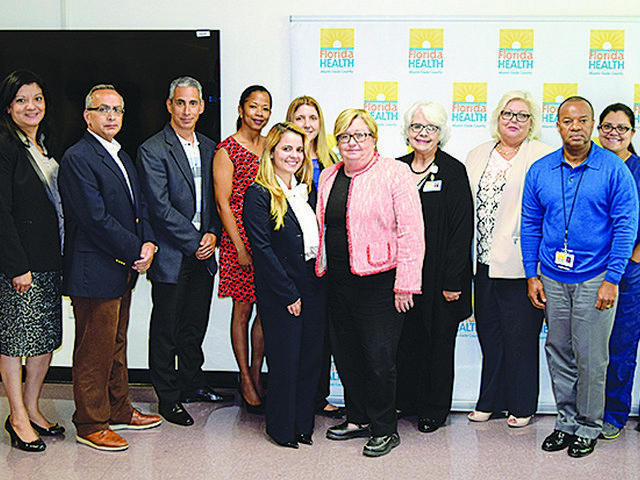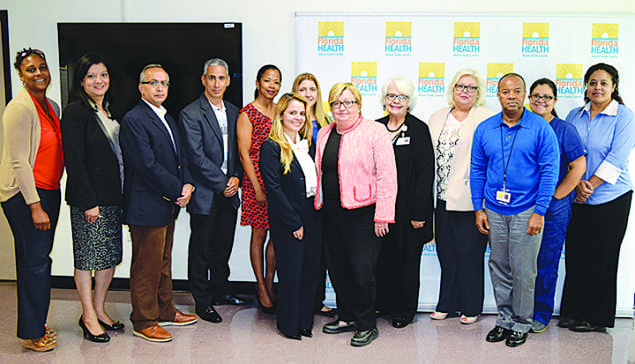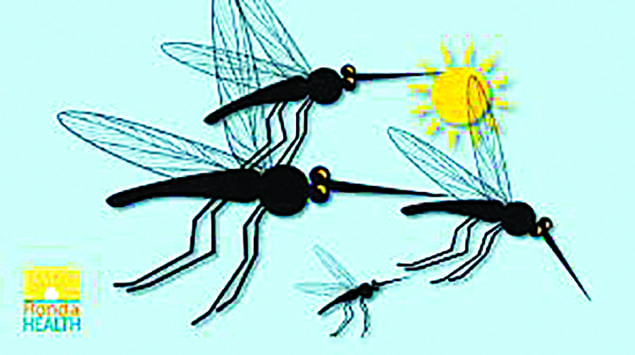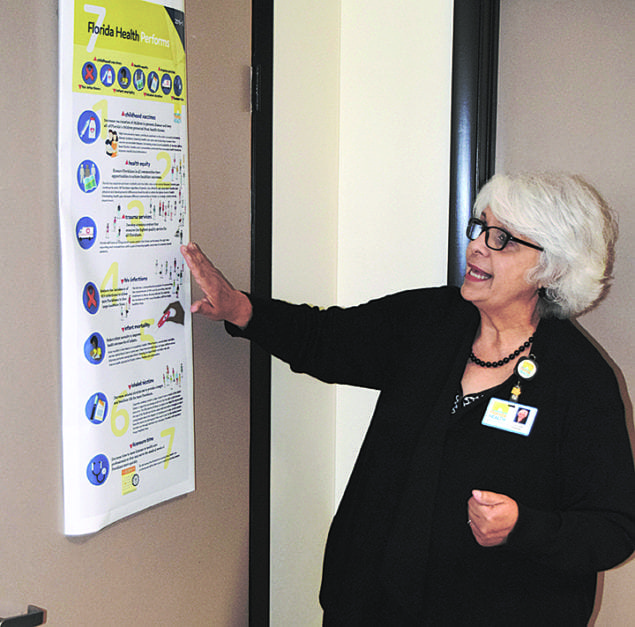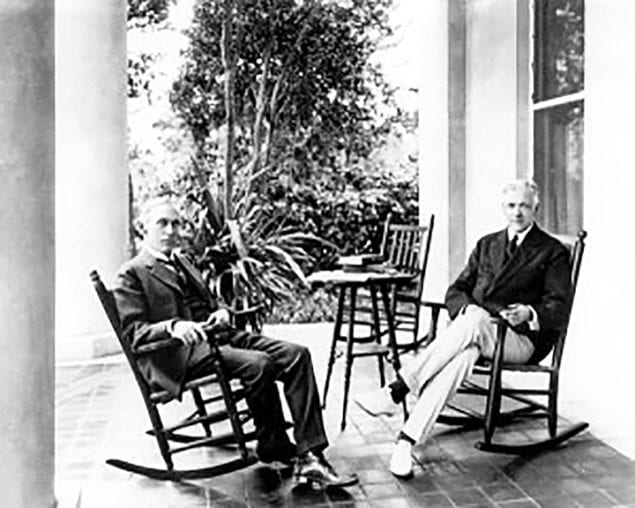Paralleling the ongoing construction of the railroad to Key West, the Department of Health serving the city of Miami was laying its foundations in response to the sudden onset of the yellow fever epidemic here in 1899.
Dr. James Jackson was the first appointed health officer of the department, and he initiated the quarantine of Miami during the epidemic, which was the first-ever action realized by the health department.
Flash forward more than a century, and while Yellow Fever is certainly no longer seen as a threat here, there is still much work to do in keeping the cities of Miami-Dade protected from disease.
And for that we rely on Dr. Lillian Rivera, the administrator of the Florida Department of Health in Miami-Dade County, to oversee the region’s many public health programs.
Like Dr. Jackson, in many ways Dr. Rivera is a pioneer in her field. Among her many achievements are being the first female, first Hispanic, and first nurse to lead a county health department in the State of Florida.
Protecting the Citizens
The goal of the Florida Department of Health is to protect the citizens and residents from looming communal diseases. In recent years, the tasks have increased to range from researching dietetics to observing the composition of the water within Miami-Dade County.
“To protect, promote and improve the health of all people in Florida through integrated state, county, and community efforts is the central mission of the Florida Department of Health,” says Dr. Rivera, for which 775 employees develop new programs and improve current ones.
Such a large base of employees is necessary to hold the health of Miami under appropriate supervision due to the wide range of health issues that pertain to South Florida.
The Department of Health is able to respond to these issues promptly due to Florida’s centralized public health system. According to Dr. Rivera, most states have a fragmented public health system that heeds to the statutes and regulations of the respective city in which the health department resides.
“This slows down communication since one system has to be filtered through another if resources are transferred between health departments,” she says. The centralized public health system is set by the state of Florida, and must be followed by every health department.
Challenge of Zika
Miami-Dade County saw the greatest benefit of its public health system during the Zika outbreak of 2016, when health institutions were able to receive resources from health departments throughout South Florida.
Thanks to the combined efforts of the Department, Miami-Dade County and other partners, there are no areas of active transmission of Zika by mosquitoes in all of Florida. All previous Zika zones such as Wynwood, North Miami Beach, Little River, and South Miami Beach have been lifted from concern after there was shown to be no evidence of continued and ongoing transmission, and no additional people infected.
The challenge of the Zika virus was hastily defeated but the surge in HIV and AIDs presents a different a challenge for the health department. In defeating sexually transmitted diseases (STDs), the health department works with educational institutions to establish a sound education in preventative measures. Statues within the state of Florida regulate health and education in tandem because of their proximity in relevance.
Opioid addiction is also on the forefront of the Florida Health Department’s list of health issues to beat, along with Zika, HIV/AIDS, and chronic diseases.
Health of Communities
“Providing better healthcare requires acute vigilance of the health of communities,” states Dr. Rivera.
Situations in the community environment lead to health concerns. Lung cancer and breast cancer are the most common form of cancers within South Florida. The Health Department is educating individuals on the dangers posed by smoking, which is the leading cause of lung cancer.
“To provide better healthcare is the ultimate goal of the Florida Department of Health and a large part of the equation is educating communities on living a healthy lifestyle,” Dr. Rivera added.
One of the programs they sponsor is WIC. Women, Infants, and Children provides help to women post-partum. This program, along with several other programs, enlisted to increase the health of Florida’s communities including providing childhood vaccines which are a great contributor to the prevention of viruses such as the flu.
Maintaining Health Equity
Morbidity rates and mortality rates across various diseases that affect Florida have significantly lowered because of the abundant opportunities to achieve healthier outcomes.
“Maintaining health equity is available to all Floridians and it will tremendously eliminate health gaps between communities, which will better the health of Florida as a whole.” noted Dr. Rivera.
Florida’s Healthy Beaches program is listed among the best such programs in South Florida for preventing the infection of enterococci bacteria. Enterococci are bacteria that typically inhabit the intestinal tract of humans and animals alike. If the bacteria enters the skin, it could cause human disease, infection, or rashes.
All residents and visitors in Miami-Dade County benefit from public health programs every day.
But, according to Dr. Rivera, “While our food and water is safer, our air is cleaner, more children are immunized from disease, and newborns have better survival rates, the incidence of HIV and AIDS, Tuberculosis and STDs remain high in our community. And too many residents are afflicted with preventable chronic diseases such as diabetes and hypertension.”
Clearly, there are many challenges facing the Florida Department of Health in Miami-Dade County, the state, and the nation – add to the list an aging population, emerging infectious and drug-resistant diseases, and the threat of bioterrorism.
Dr. Rivera says “By collaborating effectively with partners in the community, we are able to successfully target the areas where we can play an effective – and successful – role in improving public health and safety.”
The Florida Department of Health in Miami-Dade County may be reached by calling 305-324-2400 or visiting http://miamidade.floridahealth.gov/index.html


